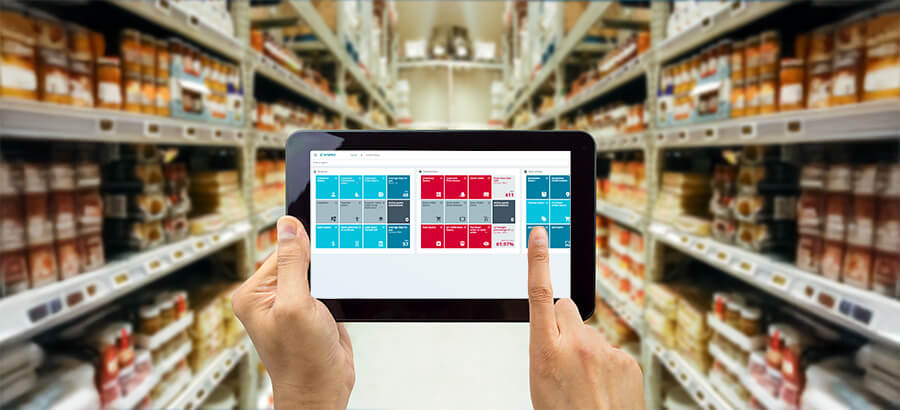The food and beverage industry is a dynamic, ever-evolving sector in which manufacturers are continuously seeking ways to optimize production and reduce costs in the face of shifting consumer demand and preferences. With the added challenges of increasingly complex supply chains and evolving regulations, food and beverage manufacturers are grappling with a range of challenges that are unique to their industry.
Turning food and beverage challenges into opportunity
For food and beverage manufacturers, success comes down to getting the right food products to the right place at the right time, all while reducing waste and despite wafer-thin margins. This balancing act is complicated by short expiry times, evolving food safety regulations and the need to be cost competitive while managing changing consumer expectations.
Optimizing production is essential to addressing these challenges. The key to achieving optimal production levels lies in improving sales and customer service, enhancing supply chain management, staying compliant, keeping customers safe, streamlining warehouse and logistics operations, enabling strategic financial management, reducing inventory levels and improving customer satisfaction.
That’s a tall order for food and beverage manufacturers. Enterprise resource planning (ERP) software can help these challenges by providing a single, integrated platform for managing all aspects of the business and ultimately optimizing production.
The role of ERP in optimizing production
A well-chosen ERP system empowers food and beverage manufacturers to optimize productivity and spur company growth. A single, integrated system built for the specialized needs of the food and beverage industry enables manufacturers to effectively manage areas such as quality control, compliance, traceability, purchasing, inventory management, warehouse operations, sales and financials.
An ERP system also makes it easier for food and beverage manufacturers to optimize production by enabling them to integrate and streamline production activities from planning and scheduling to execution and monitoring. Plus, real-time visibility into the entire supply chain process helps manufacturers identify bottlenecks, reduce delays and ensure timely deliveries.
Food and beverage manufacturers can further optimize inventory levels with the real-time information provided by the ERP system, reducing inventory carrying costs and preventing overstocking or stockouts. An ERP system also helps set and enforce quality standards at every stage of production, automates inspection processes and provides real-time data to help manufacturers detect and address issues promptly.
Another significant benefit is in the arena of regulatory compliance, where ERP systems help manufacturers adhere to the strict regulations surrounding food and beverage safety and traceability.
Making the right choice
The right ERP system delivers immense advantages to food and beverage manufacturers seeking to optimize intricate operations. When assessing ERP systems, it’s important to evaluate more than just general software capabilities and prices.
For example, review the system’s scalability. It must grow as your business expands across sites, products and geographies. Every food and beverage manufacturer has unique processes in their production operation as well as the end-to-end supply chain, and the ERP system’s customization options should enable modules to be tailored to meet those requirements.
Food and beverage manufacturers should also consider cloud versus on-premise models of ERP systems. Bearing in mind that analytics power strategic decisions, reporting and forecasting tools that deliver clear and actionable data-driven insights are vital.
When choosing a vendor, food and beverage manufacturers should look for a commitment to continuous innovation in areas such as AI, machine learning, mobile access and the ability to track carbon footprints and waste.
Ultimately, thoroughly vetting vendors and their systems leads to fruitful partnerships that drive long-term operational excellence. From an overall perspective, ERP software enables food and beverage manufacturers to unify sprawling operations, eliminate silos, reduce waste, ensure traceability and instill data-driven agility.




1 thought on “How Food & Beverage Manufacturers Can Optimize Production with an ERP System”
This blog provides valuable insights on how ERP systems can help food and beverage manufacturers optimize production. The focus on efficiency, cost reduction, and quality control is highly relevant. Great read!